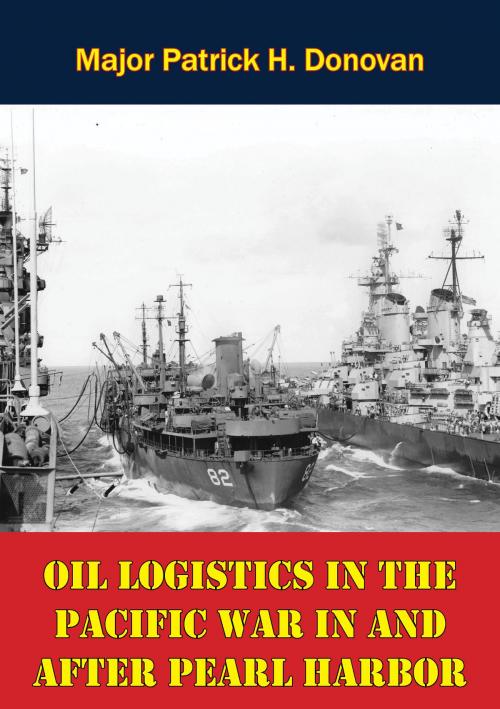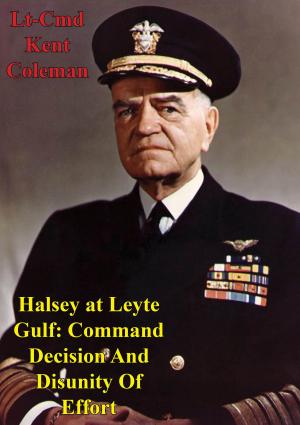Oil Logistics In The Pacific War In And After Pearl Harbor
Nonfiction, History, Germany, European General, Military, United States| Author: | Major Patrick H. Donovan | ISBN: | 9781786254061 |
| Publisher: | Verdun Press | Publication: | November 6, 2015 |
| Imprint: | Verdun Press | Language: | English |
| Author: | Major Patrick H. Donovan |
| ISBN: | 9781786254061 |
| Publisher: | Verdun Press |
| Publication: | November 6, 2015 |
| Imprint: | Verdun Press |
| Language: | English |
This research paper focuses on oil and its importance to operations in the Pacific during World War II. It specifically concentrates on the period before Japanese-U.S. hostilities, through the strike on Pearl Harbor, and concludes with operations in the Solomon Islands. A secure and reliable source of oil was one of the primary reasons that Japan chose to go to war with the United States that fateful Sunday in December 1941.
The Japanese understood their country’s need for oil and other resources, but never conformed their military strategy to achieve their national objective of economic self-sufficiency. The Japanese Navy pedantically espoused a maritime strategy that required the United States Navy to fight a war according to the Japanese playbook. The Japanese Navy never understood the importance that oil, including its storage and transportation, had to all Navies that tried to steam the great expanses of the Pacific. This lack of logistical foresight was to eventually play a major role in Japan’s defeat in the Pacific.
Commanders and their staffs must never forget the importance operational logistics plays in achieving operational and national objectives. This research provides the reader a valuable example of the importance of logistics in the execution of operational strategy while pursuing national goals. Although it is valuable to learn from one’s own personal mistakes, it is usually less painful to learn from someone else’s error, and thereby ensure that their blunder does not become your own.
This research paper focuses on oil and its importance to operations in the Pacific during World War II. It specifically concentrates on the period before Japanese-U.S. hostilities, through the strike on Pearl Harbor, and concludes with operations in the Solomon Islands. A secure and reliable source of oil was one of the primary reasons that Japan chose to go to war with the United States that fateful Sunday in December 1941.
The Japanese understood their country’s need for oil and other resources, but never conformed their military strategy to achieve their national objective of economic self-sufficiency. The Japanese Navy pedantically espoused a maritime strategy that required the United States Navy to fight a war according to the Japanese playbook. The Japanese Navy never understood the importance that oil, including its storage and transportation, had to all Navies that tried to steam the great expanses of the Pacific. This lack of logistical foresight was to eventually play a major role in Japan’s defeat in the Pacific.
Commanders and their staffs must never forget the importance operational logistics plays in achieving operational and national objectives. This research provides the reader a valuable example of the importance of logistics in the execution of operational strategy while pursuing national goals. Although it is valuable to learn from one’s own personal mistakes, it is usually less painful to learn from someone else’s error, and thereby ensure that their blunder does not become your own.

![Cover of the book FLYING FURY: Five Years In The Royal Flying Corps [Illustrated Edition] by Major Patrick H. Donovan](https://www.kuoky.com/images/2014/june/300x300/9781782892168-Eheb_300x.jpg)













